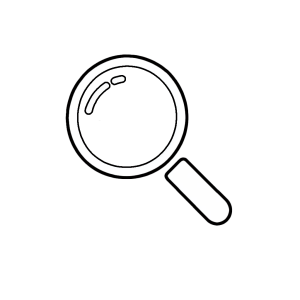Module 1: Laws, Ethics, and Policies
 Module 1 Outcomes
Module 1 Outcomes
- MLO 1.1: Identify the legal and ethical rights and responsibilities of various partners in special education services. (CLO I, InTASC 9j, 9o)
- MLO 1.2: Apply ethical and legal principles to special education service scenarios. (CLO I, InTASC 9j, 9o)
- MLO 1.3: Evaluate personal understanding and professional development needs related to the field of special education. (CLO I, InTASC 9i, 9j, 9n, 10p)
- Mai Lam, a six-year-old kindergartener from Wisconsin, is struggling with early literacy skills.
- Rueben Washington, an 11-year-old fifth grader in Pennsylvania, is having conflicts with teachers and other students.
- Aiden Gonzalez-Jones, a 16-year-old junior from Arizona, is facing big decisions about life after high school.
These seemingly very different children share something in common: All three of them will come into contact with special education services at some point during their schooling. You may become a classroom or special education teacher for children like Mai, Rueben, or Aiden, and knowing how to best support them in their educational journeys will be crucial to their long-term success. This course can help you begin the process of understanding, engaging with, and making the most of special education services in the American public school system, as well as approach your role as an educator dedicated to equitable and effective learning for all students.
Special education: specially designed instruction, at no cost to parents, to meet the unique needs of a child with a disability (IDEA, 2004).
Mai, Rueben, and Aiden, along with their families and teachers, will navigate special education services in very different ways, receiving (or declining) very different kinds of support. The infinite variations in the special education process can be bewildering, even for professional educators. Adding to that complexity is the fact that all partners in a special education team bring differing degrees of legal and procedural knowledge, cultural biases, and personal experiences into the ways they interact with special education. In your Teacher Education program, you may only need to take one special education-focused course, but the content that is covered is necessary for all teachers to know. Whether you are a special education or general education teacher, you will support students who require special education services. This course provides teachers with the foundational knowledge for supporting students who receive special education services, along with the necessary legal and ethical framework for serving students in this population.
Educators have legal responsibilities that apply to interactions with all students, and there are additional laws in place to protect the rights of students receiving special education services. You also have ethical responsibilities to your students and the schools you serve, though these are not as clearly prescribed as laws. This module begins by exploring the responsibilities of teachers as they relate to federal laws, state laws, ethical codes, and ethical considerations. Then, it delves into the federal, state, and ethical considerations relevant to teachers in special education. As you will learn, the expectations on teachers transcend formal teaching responsibilities and include multiple areas of professionalism, such as complying with federal laws and mandates to guide practice, knowing the rules of ethics and mandatory reporting regulations, confidentiality requirements, political expectations, laws guiding Individual Education Programs (IEPs), and many others.
Consider the following questions as you work through this module:
- How can you use the legal foundations of special education to grow your professional knowledge and skills as an educator?
- What should inform your ethical decisions around how you support students with disabilities?
- How will what you learn in this module help you learn more effectively in this course, your education program, and your career?
It will be crucial to your success in this course and throughout your career as an educator that you are open to changing your mind and, subsequently, your practices and interactions with others based on what you learn (or unlearn). As is the case for Mai, Rueben, Aiden, and their families, your journey through the special education world will be unique to your identity, experiences, work environment, and professional development choices. Use this course to help you forge the best possible path for both you and your future students.
 Critical Perspective
Critical Perspective
The Importance of Unlearning in Special Education
Due largely to the Individuals with Disabilities Education Act (or IDEA), which we will explore in detail in this module and throughout the course, American public schools have drastically shifted their approach to how students receive special education services from an exclusionary to an inclusionary model. Legislators had to be open to reconsidering what was considered common sense for decades—that students with disabilities should be pulled from general education classrooms for individualized teaching.
As the video explains, a 2022 study confirmed initial evidence that showed the Least Restrictive Environment (LRE) for a student results in much more effective learning. Keep in mind that the LRE is not synonymous with the general education classroom. The goal always focuses on educating students with their peers in the general education classroom with supports like accommodations and modifications. However, IDEA presents an overarching theme that calls for a decision about the learning environment based on each student’s individual needs.
What if legislators had refused to unlearn what society thought it knew about supporting students with disabilities? As you watch this brief video that shows the positive effects of inclusion for student learning, prepare yourself to unlearn what you think you know about special education practices and student learning.
Describe the professional practices of special education teachers.
Knowledge. The teacher understands laws related to learners’ rights and teacher responsibilities (e.g., for educational equity, appropriate education for learners with disabilities, confidentiality, privacy, appropriate treatment of learners, reporting in situations related to possible child abuse).
Disposition. The teacher understands the expectations of the profession including codes of ethics, professional standards of practice, and relevant law and policy.
Knowledge. The teacher understands how personal identity, worldview, and prior experience affect perceptions and expectations, and recognizes how they may bias behaviors and interactions with others.
Disposition. The teacher sees him/herself as a learner, continuously seeking opportunities to draw upon current education policy and research as sources of analysis and reflection to improve practice.
Disposition. The teacher actively shares responsibility for shaping and supporting the mission of his/her school as one of advocacy for learners and accountability for their success.
a written statement for each child with a disability that is developed, reviewed, and revised in a meeting
is a law that makes available a free appropriate public education to eligible children with disabilities throughout the nation and ensures special education and related services to those children
requires to the maximum extent appropriate, children with disabilities, including children in public or private institutions or other care facilities, are educated with children who are not disabled, and special classes, separate schooling, or other removal of children with disabilities from the regular educational environment occurs only when the nature or severity of the disability of a child is such that education in regular classes with the use of supplementary aids and services cannot be achieved satisfactorily



